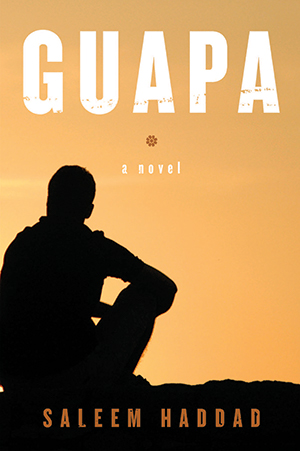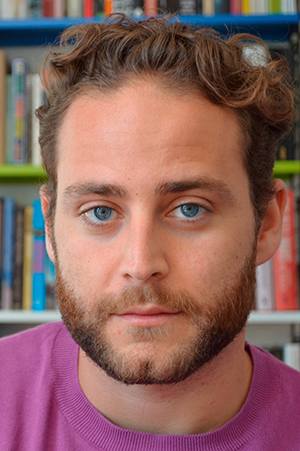
Saleem Haddad
Guapa
Tues. March 14, 2017
Saleem Haddad
With a Reading and Interview by Dina Georgis
Co-presented by Pages Unbound and Another Story Bookshop.
On March 14, Saleem Haddad was interviewed by Dina Georgis at the Gladstone Hotel’s Ballroom. They talked about Haddad’s career, political and aesthetic choices and, above all, about his first novel Guapa.

Saleem Haddad
Guapa
Book Cover

Saleem Haddad
Saleem Haddad (born 1983 in Kuwait) is an author and aid worker of Iraqi-German and Palestinian-Lebanese descent, whose debut novel Guapa was published in 2016. He was born in Kuwait City in 1983 to a Lebanese-Palestinian father and an Iraqi-German mother, and was educated in Jordan, Canada, and the United Kingdom.
Haddad’s debut novel Guapa was released in March 2016 by Other Press. The book, set over 24 hours, tells the story of Rasa, a gay man living in an unnamed Arab country, and trying to carve out a life for himself in the midst of political and religious upheaval.
The novel was excerpted by VICE, and received widespread acclaim, with The New Yorker calling it a “vibrant, wrenching début novel”. According to Book Riot, “Haddad maps postcolonial theory, post-revolutionary malaise, and post-outing upheaval onto your standard post-college, what-am-I-doing-with-my-life aimlessness, creating something wonderful and fascinating in the process.”
Haddad’s work has also appeared in Slate and Muftah. He has also worked as an aid worker with Doctors Without Borders and other organizations in Yemen, Syria, and Iraq. He currently lives in London with his partner.
Saleem’s interviewer was Dina Georgis.
Dina Georgis is an Assistant Professor, Women and Gender Studies Institute, University of Toronto.
“Situated in the fields of postcolonial, diaspora and queer studies, my work draws on theories of trauma, affect and mourning to think through how political cultures are responses to historic loss. I am particularly interested in how narrative and art articulate the affective topographies of memory and provide the conditions for working through the past for better political futures. My book, The better story: Lessons from postcolonial monsters and Queer affects (SUNY Press), is a conversation among postcolonial studies, queer theory and psychoanalysis. With a focus on the Middle East, I consider the dynamics of political conflict, the histories and subjectivities they produce, and what it means to make an ethical relationship to the terrorized and terrorizing bodies that conflict produces. No language is neutral: Writing on Dionne Brand, a co-edited collection with Katherine McKittrick & Rinaldo Walcott, was published by Wilfrid Laurier Press.”
—Dina Georgis
